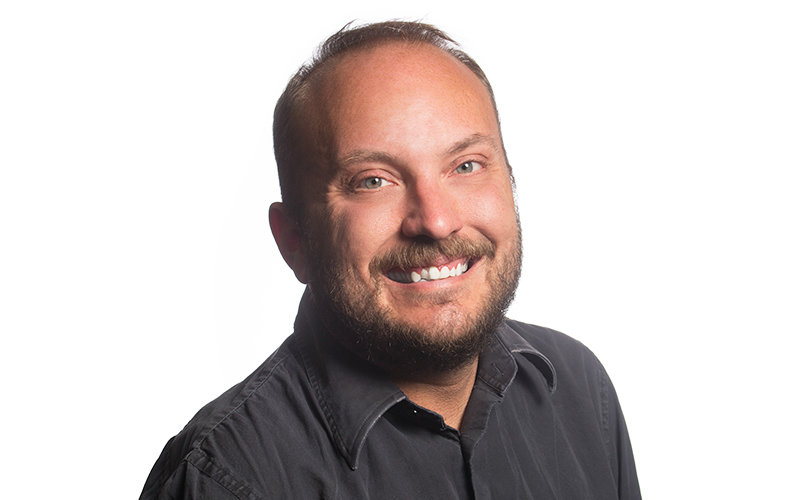
Eric Price started on his journey to college teaching by first serving in student affairs. Following a master of science in college student personnel from Southern Illinois University and work as a graduate career adviser and residence life coordinator, Price realized that he was more often than not providing not only advice but counseling.
He would go on to earn a master of arts in counselor education – mental health counseling at the University of Central Florida, and a doctor of philosophy in counseling from the University of North Texas, where he also served as a counselor in the University’s Child and Family Resource Clinic and Counseling Human Growth and Development Center.
“I realized that my whole life had been gravitating into the helping professions,” says the assistant professor of counseling, who joined the campus this fall. “Once I realized that, it very much felt like a homecoming — that this was what I should do with my life.”
What brought you to CSUF?
The philosophy of the Counseling Department at Cal State Fullerton is very much aligned with my beliefs. I was impressed with how the faculty emphasizes a humanistic approach to their work by training counseling students to focus on building a therapeutic relationship with their clients. It felt like a wonderful fit and I’m thrilled to be here.
What are your research interests?
My principal research is focused on the LGBTQQIA (lesbian, gay, bisexual, transgender, queer, questioning, intersex, asexual) community. Through previous research, we are very aware of how rejection and discrimination causes harm to members of this population. However, I am interested in understanding the positive aspects of this community — specifically, how LGBTQQIA individuals experience resiliency and support and how these variables impact mental health. I hope to use this knowledge to help counselors develop interventions that could be used with sexual minorities and their families. I also hope to include students into my research at some point.
What do you hope students will get from your classes/teaching?
Three things: First, I want students to understand that becoming a counselor involves learning a new “way of being.” The counseling relationship is unlike any other type of relationship as students need to learn how to fully engage and give themselves to the process of counseling.
Second, students need to know how to cultivate a safe environment within the counseling space. They need to understand themselves, and their own biases and values so they can avoid trying to impose them onto their clients.
And last, I hope students learn how to select and implement strong evidence-based practices in their work with clients.
What would you like the general public to know about counseling?
There is a huge misconception that counseling is only for the “messed up.” I believe anybody and everybody can benefit from engaging in the counseling process as it can lead to personal insight, new ways of thinking and unexpected personal growth. I think the counseling process can be helpful for everyone.